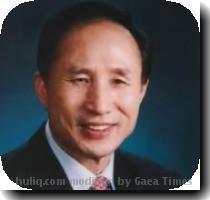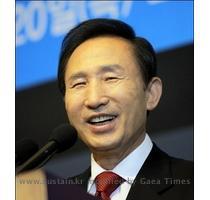US officials say China may criticize North Korea’s role in sinking of South Korean warship
By Matthew Lee, APThursday, May 27, 2010
Officials: China could join moves against NKorea
ELMENDORF AIR FORCE BASE, Alaska — China has signaled it could soon join the U.S. and its allies in blaming North Korea in the sinking of a South Korean warship, senior American officials said Wednesday.
Speaking after strategic talks this week in Beijing, the U.S. officials said China indicated it is prepared to hold North Korea accountable for the March 26 torpedo attack and could join in some kind of formal rebuke by the U.N. Security Council.
The move would represent a breakthrough for the White House, because so far China has resisted condemning North Korea for the incident, which cost the lives of 46 South Korean sailors. China has long been North Korea’s patron and ally, propping up Pyongyang’s Stalinist-style regime with financial and military aid as well as diplomatic support.
On a visit to South Korea this weekend, Chinese Premier Wen Jiabao is likely to express regret for the deaths and hint that China will accept the results of an international investigation blaming North Korea, the U.S. officials said. They spoke on condition of anonymity due to the sensitive nature of the discussions with China.
Wen is also expected to leave open the possibility of backing action against Pyongyang at the U.N. Security Council, although it’s not clear how far Beijing is prepared to go in rebuking its historic ally.
In Seoul earlier Wednesday, U.S. Secretary of State Hillary Rodham Clinton said the world must respond to the “unacceptable provocation” represented by the sinking of a South Korean warship, as Pyongyang engaged in blistering rhetoric against Seoul and Washington.
Clinton told reporters after talks with South Korean leaders that “the international community has a responsibility and a duty to respond” to the sinking, which “requires a strong but measured response.” She spoke at a joint news conference with South Korean Foreign Minister Yu Myung-hwan.
Clinton did not say what that response should be, but two U.S. officials said the U.N. could take a variety of actions, ranging from tightening sanctions to a statement rebuking Pyongyang.
As one of five permanent members of the Security Council with veto authority, China can block any measure the U.N. tries to take.
Clinton spent hours discussing the sinking with top Chinese leaders during strategic and economic talks in Beijing on Sunday, Monday and Tuesday, before spending a few hours in Seoul Wednesday.
“I believe that the Chinese understand the seriousness of this issue and are willing to listen to the concerns expressed by both South Korea and the United States,” she said in South Korea. “We expect to be working with China as we move forward in fashioning a response.”
Tensions on the divided Korean peninsula have risen sharply since international investigators issued a report last week saying a North Korean submarine was likely responsible for the sinking of the Cheonan, a corvette patrolling the Yellow Sea.
South Korea began implementing a package of punitive measures against the North on Tuesday — ranging from slashing trade, resuming propaganda warfare and barring the North’s cargo ships.
After meeting with South Korean President Lee Myung-bak, Clinton endorsed the moves. “We’re very confident in the South Korean leadership, and their decision about how and when to move forward is one that we respect and will support,” she said.
She praised the investigation of the sinking as “very thorough, highly professional” and “very convincing.” She said both the United States and South Korea had offered China “additional information and briefings about the underlying facts of that event.”
“We hope that China will take us up on our offer to really understand the details of what happened and the objectivity of the investigation that led to the conclusions,” she said.
China is not the only potential roadblock the U.S. and its allies face when it comes to pushing a tough response through the U.N. Security Council. Russia is another of the veto-holding permanent council members and must also be persuaded to take action.
The Kremlin said in a statement Wednesday that President Dmitry Medvedev has sent a group of experts to Seoul to study the international investigation’s findings.
“Medvedev considers it a matter of principle to establish the reason for the sinking of the ship,” the statement said.
South Korea’s Yu, asked about the possibility of China or Russia blocking action by the U.N. Security Council, said they “will take time, I’m sure, but they will not be able to deny the facts.”
Associated Press writers Sangwon Yoon and Hyung-jin Kim in Seoul and Christopher Bodeen in Beijing contributed to this report.
Tags: Alaska, Asia, Beijing, China, East Asia, Eastern Europe, Elmendorf Air Force Base, Europe, Greater China, Lee Myung-bak, Military Facilities, North America, North Korea, Pyongyang, Russia, Seoul, South Korea, United States

